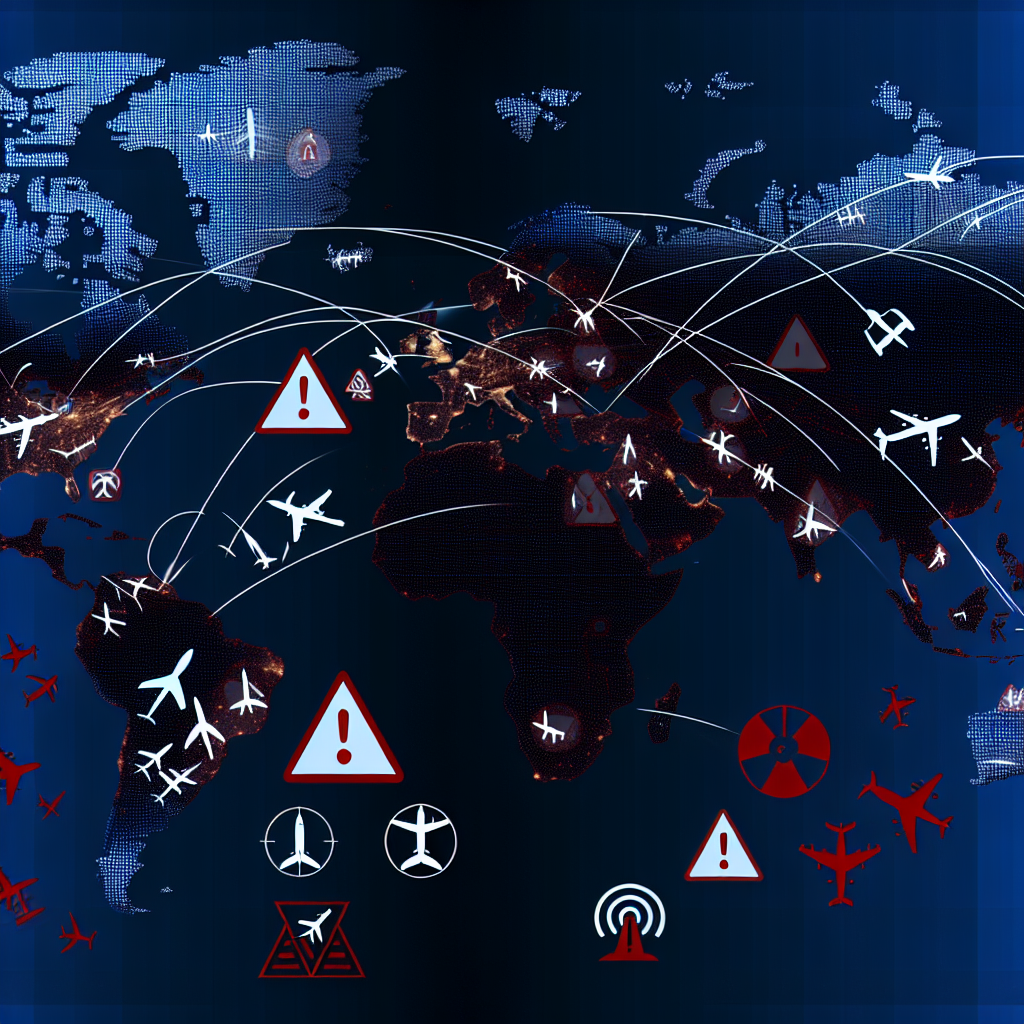Impact of Missile Threats and Airspace Closures on Airlines
Reuters Last Updated: Jun 04, 2025, 09:38:00 AM IST
Challenges Faced by Airline Operations

“Flight planning in this kind of environment is extremely difficult… The airline industry thrives on predictability, and the absence of this will always drive greater costs,” stated Guy Murray from TUI Airline.
As airspace closures escalate in regions like Russia, Ukraine, the Middle East, and parts of Africa, airlines are left with limited options for flight routes.
“More than half of the countries that were once reliable overflight options for Europe-Asia flights now require careful assessment before each flight,” commented Mark Zee, founder of OPSGROUP.
Recent Events and Their Impact
The ongoing Israeli-Palestinian conflict has led to commercial aviation sharing airspace with rapid drone and missile attacks on major flight paths, some observable by pilots and passengers. In recent months, Russian airports have frequently closed due to drone activity, and incidents of GPS interference are spiking around critical geopolitical zones globally. Following hostilities between India and Pakistan, both nations restricted access to each other’s airspace.
“Using airspace as a tool for retaliation is inappropriate,” expressed Nick Careen, IATA Senior Vice President, during a conference in New Delhi.
Isidre Porqueras, COO at IndiGo, emphasized that recent diversions are counterproductive to emission reduction efforts.
Potential Implications for Civil Aviation
Concerns about aircraft safety are paramount, highlighting the industry’s worst-case scenario: a plane being struck by weaponry—either accidentally or intentionally.
A tragic incident occurred in December when an Azerbaijan Airlines flight tragically crashed in Kazakhstan after being mistakenly hit by Russian air defenses, resulting in 38 fatalities. Additionally, a cargo plane was downed in Sudan last October, killing five individuals.
Aircraft have been shot down multiple times since 2001, with several near-miss incidents recorded, underscoring the urgency for governments to enhance information-sharing to safeguard civil aviation as conflict zones become more common.
Despite improvements in general aviation safety statistics, incidents relating to conflicts remain a significant concern that necessitates immediate global coordination, as noted by IATA.
Decision-making Under Pressure
Airlines must navigate complex government advisories and security assessments, leading to inconsistent policies regarding travel routes.
The closure of Russian airspace since the start of the Ukraine conflict has placed Western airlines at a financial disadvantage compared to carriers from China, India, and the Middle East, which can utilize shorter, more efficient routes.
Adjustments in operational strategies have resulted in Singapore Airlines altering its flight path for SQ326 to Amsterdam several times over the last year, adapting its route in response to shifting conflict dynamics.
Concerns among pilots and flight staff regarding the impact of variable air travel risks on safety are increasingly prevalent.
“The IATA asserts that airlines should evaluate the safety of flying over conflict zones, even if historical pressures can affect these decisions,” commented Paul Reuter of the European Cockpit Association.
Crew members often retain the right to decline flights when facing safety concerns, whether weather or conflict-related, emphasizing that airlines typically respect crew sentiments regarding their comfort level during flights.
Further Insights Available
Stories you might be interested in
Based on an article from economic times: https://economictimes.indiatimes.com/industry/transportation/airlines-/-aviation/expanding-missile-threats-and-airspace-closures-are-straining-airlines/articleshow/121612166.cms



